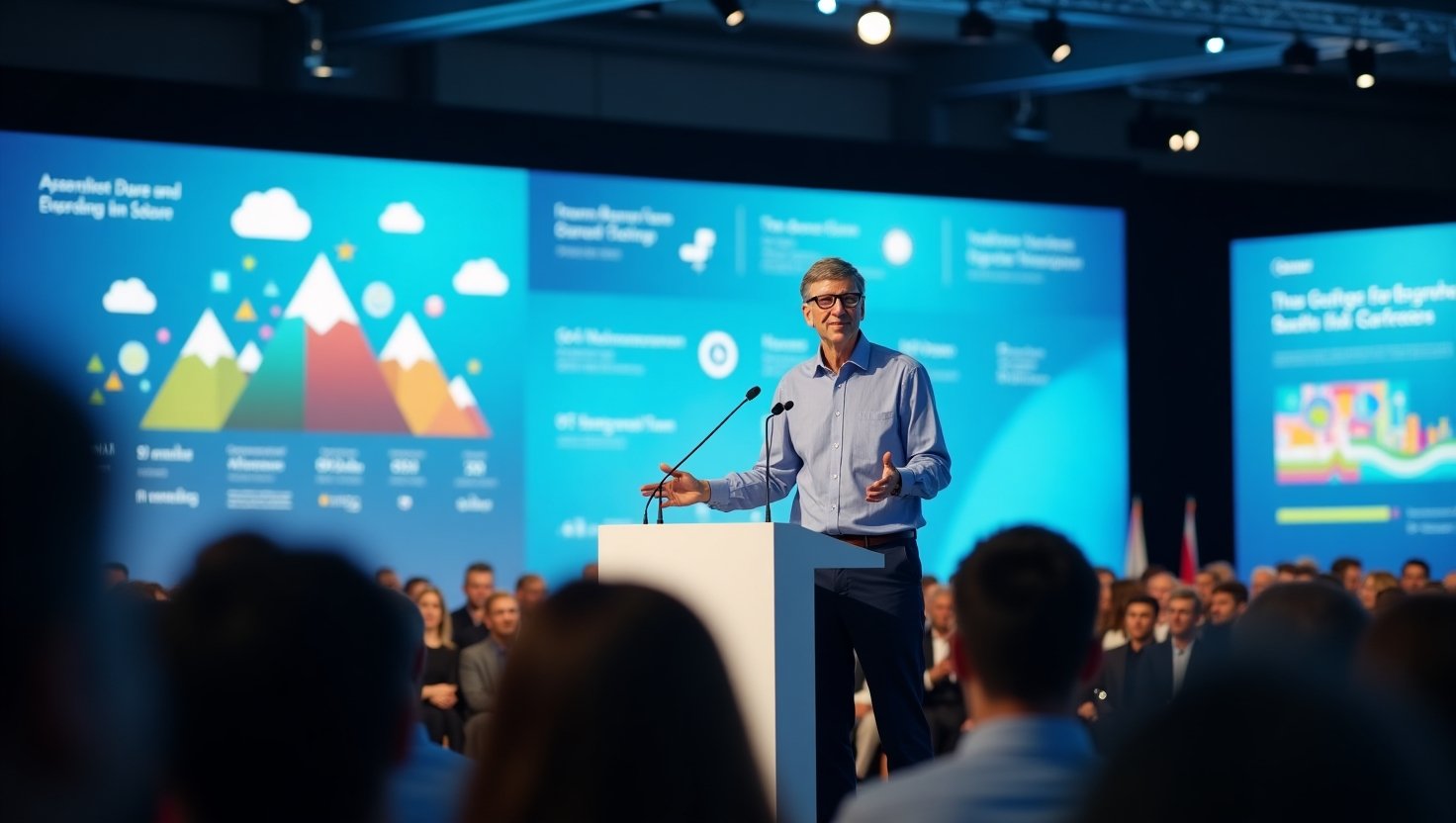What Kind Of Leader Is Bill Gates?
/Bill Gates is known as a great business leader who is a pioneer in technology and philanthropy. A natural leader, he is known for his strategic vision, analytical mindset, and an unwavering commitment to innovation. From founding Microsoft to running the Bill & Melinda Gates Foundation, he has had a transformative impact on the world through his approach to leadership. The qualities are key to Founders, and understanding the traits that define his leadership offers insight into how he built one of the most successful companies and, eventually, a global philanthropist.
Because one of the hallmarks of Bill Gates as a leader is his ability to focus on long-term goals. When he co-founded Microsoft in 1975, few people had their own personal computer, but he imagined a future in which computers would be in every home and business. He ordered Microsoft to create software that would enable computers to be used and do things for the average consumer.
He didn't focus on quarterly returns, but rather building a software ecosystem something that ensured Microsoft products were essential tools that people and businesses needed to use. That forward-looking strategy is what made Windows and Office industry standards. Gates was aware that making Microsoft a keystone company would enable it to remain the leader of the market for many years.
Bill Gates As A Competitive And Strategic Leader Who Pushed For Microsoft’s Market Dominance
Gates had an intense competitive streak. His faith was in growing market share through better products and strategic alliances. During his leadership, Microsoft aggressively sought business opportunities, at times resulting in contentious legal battles over antitrust issues. He was unafraid to oppose rivals and fought to make certain that Microsoft remained on top.
His competitive drive, in turn, urged Microsoft to improve its products and innovate. Gates ensured that Microsoft remained at the top of the market in Windows, Internet Explorer, enterprise solutions. His forceful methods drew criticism, but his single-minded focus on keeping Microsoft at the head of the technology pack ensured the company’s success.
Also Check Out Our: Why Did Jeff Bezos Sell Amazon?
Gates’ commitment to precision, efficiency, was also a hallmark of his leadership. He was known to be very analytical, and expected employees to justify their ideas with data. He frequently pushed his team to sharpen their thinking and their approach. Avoiding micromanagement at all costs, he still had his hands on Microsoft’s products and was adamant that they lived up to the highest standards.
He was known for reading long reports and giving detailed feedback. He did this by fostering a culture of continuous improvement where one was expected to work through ideas in tandem with teams until the optimal solution was reached. Your data knowledge is so carefully crafted that it has been partly responsible for Microsoft becoming known for producing reliable and innovative software solutions.
Our standard for professional cleaning services is no less than that, because we bring the same care and attention to detail into your home that we use in our own. From a tidy home to office, our team provides impressive results using eco-friendly solutions.
Bill Gates As A Pragmatic And Solution-Oriented Leader Who Focused On Solving Real-World Problems
Gates was not only a visionary but extremely pragmatic. He had a vision of addressing real-world issues using technology. We're talking about Microsoft; his tenure was all about practical solutions, software that helped businesses and consumers do more, better, faster.
That problem-solving mindset was a foundation of his good works as a philanthropist. Through his Bill & Melinda Gates Foundation, he has addressed global concerns including infectious diseases, education and poverty. He attacks philanthropy the same way he moralized business: find the vital problems, study the solutions and force data-driven methodologies to mission success.
Also Check Out Our: What Makes Jeff Bezos Special?
Bill Gates As A Philanthropic Leader Who Shifted From Business Success To Tackling Global Challenges
Bill Gates spent his time focusing on philanthropy after leaving his day-to-day role at Microsoft. His work in health and education has been as consequential as his work in technology. The Bill & Melinda Gates Foundation has financed projects to fight diseases like malaria and polio, enhance sanitation and sponsor educational initiatives across the globe.
Gates brings the same strategic thinking and efficiency to philanthropy that he did to business. He has a strong belief in measurable impact and funds initiatives that have demonstrable, sustainable benefits. He has been able to mobilize resources and bring experts together around public health and development programs.
Bill Gates As A Leader Who Encouraged Innovation, Collaboration, And A Culture Of Creativity
Throughout his career, Gates promoted a culture of innovation. He encouraged employees to experiment with new ideas and innovative solutions. In doing so, he realized that focusing on certain skills will serve him (and all of us) well, so he allied with tech companies, nations, and nonprofits alike.
At Microsoft, he pushed for advances in software, cloud computing and artificial intelligence. In philanthropy, he has worked with scientists, statecraft, and corporate leaders in order to solve global issues. His ability to convene people and provoke creative thinking has been a cornerstone of his success as a leader.
Also Check Out Our: What Is Jeff Bezos Doing Now?
Bill Gates As A Resilient And Adaptive Leader Who Overcame Challenges And Learned From Criticism
Every leadership has its challenges, and Gates received his share of criticism during his tenure. Central to that success was Microsoft’s dominance, which resulted in antitrust lawsuits and raised eyebrows about his aggressive business strategies. But Gates bounced back, adjusting to new realities and improving his game.
Even in philanthropy he’s also not without controversy his foundation and his influence have been criticized as a threat to sound public policy. But he’s still addressing global problems with the same determination that helped build Microsoft. So his willingness to learn from failures and change his game plan has been crucial to his long-term success.
Bill Gates has left an indelible mark on the worlds of technology and philanthropy as a leader. The industry, the size of the business, the challenges had to be solved, the revenue had to be earned, the people had to be led, all that clearly required a vision, competitive approach, attention to detail, problem-solving set of mind, a commitment to innovation and endless game. From determining the future of the software industry to addressing global issues, he manages with equal parts ambition and practicality. Learning how he did it can teach us important lessons about how to lead in business or social impact.







